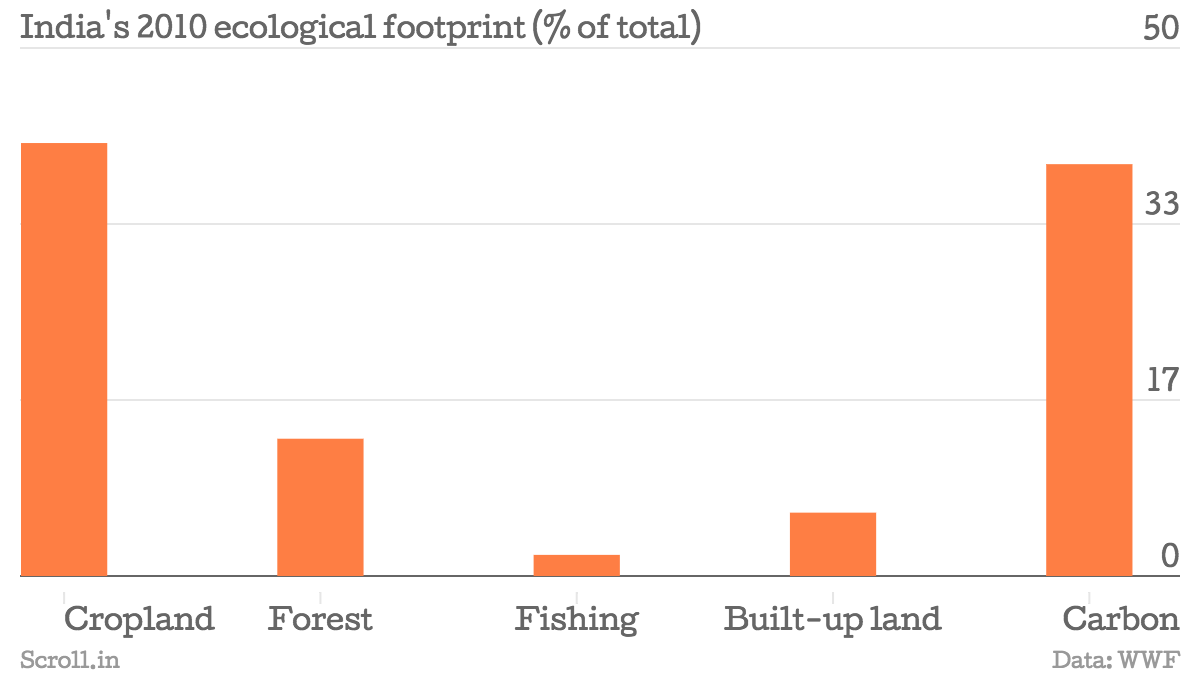Global Footprint Network estimates how much we consume, how efficiently we produce, how many people we are and how much the earth’s natural systems generate. As both the world’s population and consumption have been increasing, Earth Overshoot Day arrives earlier and earlier every year – from December 23rd in 1970 to mid-August now.

India crossed its own ecological deficit line this year more than a month ago. India’s ecological deficit day – the day when the country’s demand for ecological resources and services exceeded what its ecosystems can regenerate in that year – was on June 30. India has rich ecological resources and is among the top 10 countries contributing to the world’s biocapacity. But it also has the third biggest ecological footprint, according to the World Wildlife Fund’s Living Planet report released earlier this year.

One of the most stressed natural resources in India is water. The Water Footprint Network finds that India (13%), along with China (16%) and the US (10%), has the biggest water footprint – the use of water to produce food, other commodities and products.

India is the world's largest consumer of blue water, which is the surface and ground water used to make a product. Most of this blue water in India goes towards growing wheat, rice and sugarcane in that order. Croplands, in fact, have the largest ecological footprint due to production.

The costs of ecological overspending are already being seen as deforestation, drought, fresh-water scarcity, soil erosion and biodiversity loss. Carbon emissions are hastening the overshoot process. According to the WWF, the world’s carbon footprint more than doubled between 1961 and 1973, which is when the world went into ecological overshoot.
Limited-time offer: Big stories, small price. Keep independent media alive. Become a Scroll member today!
Our journalism is for everyone. But you can get special privileges by buying an annual Scroll Membership. Sign up today!